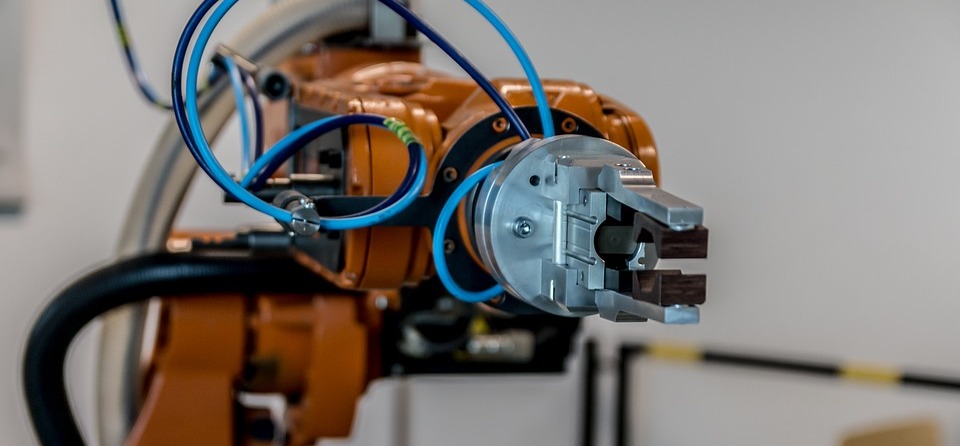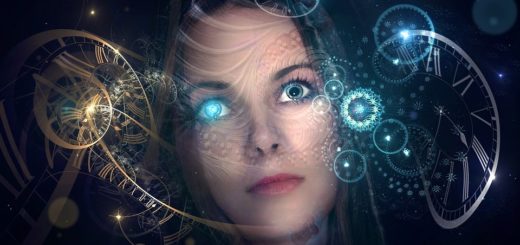Why AI? – Part 2
This is the follow up blog post about my conversation with a group of AI enthusiasts to whom I presented the question: “Why are you, and why do you think other people are, so interested in AI?” The post about the first 3 responses is here, and this post will discuss the last 2:
#4. Because the optimization of any project (and therefore growth and development in general) relies on having the best possible tools to do it with, and AI is the best tool there is
#5. Because people want to play God
Here we go:

4. AI enables task optimization
In any field, the goal is progress and optimization – doing things faster and better. AI is currently making great strides in various fields, using vast amounts of information to find insightful patterns that no human can and organizing information more quickly and neatly than has ever been possible. With that kind of powerful tool in existence, it makes sense that everyone would try to get their hands on it to maximize the effectiveness of their projects. After all, the goal is progress. But the philosophical and eye-roll inducing question once again arises – is progress necessarily defined by better technology? What about emotional, societal and spiritual progress? Are we focusing enough on those parts of the progress equation, or are some of them being sacrificed in the pursuit of better devices and larger profits? Studies on happiness have found that it’s not what you have or how successful you are that makes you happy, it’s the connections you make with the people in your life and the quality of your relationships that determines your life satisfaction. So a happy and prospering society is not necessarily the one with the most advanced technology.

That being said, it’s difficult to be happy and prospering when you are ill, disabled or living in poverty or severe pollution. And a lot of technology today is aimed towards fixing those problems quickly and efficiently. But on the other hand, another large part of technological development focuses on making the most attractive smartphone, the most engaging app, the most immersive VR game and the most appealing websites that will get you to buy the most amount of stuff you don’t need. And the more time you invest in these types of technologies, the less you have for establishing those deep human connections I mentioned earlier as being vital to health and happiness. So technological progress, like most other things, gives as well as takes. It’s important to be aware of this delicate balance of pros and cons and gauge the overall success of technology by the health and happiness of its users.
5. AI is a product of people’s desire to play God
As far back as the 3rd century BC, people have been dreaming of creating artificial life. In the novel the Argonautica written during that period, there is a story about Talos – an artificial giant created by the god Hephaestus to defend Crete from invaders. Talos is made of bronze and in his mechanical veins runs the blood of the gods, placed there by his inventor. In the fourth century AD, the emperors of Constantinople impressed ambassadors and dignitaries with robotic creations in their grand reception halls. In the 12th century AD, it was said that the Pope invented a mechanical head which could correctly answer questions it was asked, and in the late 1700s an automatic chess playing robot called “The Turk” fascinated people around the globe before it was exposed as a hoax. It appears that the creation of autonomous life and intelligence has been a coveted accomplishment since the dawn of our own transformation into intelligent beings.
But why does wanting to create technological replicas of humans (I’m talking about general AI and robotics now, not narrow AI like voice recognition) have to equate with people wanting to play God? Well, I’m not saying that this is always a conscious effort. (Even if you are not religious, humor me in this line of thought. After all, religion is often brought up in this conversation) God is depicted as a perfect being, which would also mean that He possesses immense intelligence. And what did a being of immense intelligence do with His power? Among other things, He created something “in His image”. So perhaps, re-creation of the self is one of the ultimate signs of high intelligence. And we, as the most intelligent species on our planet, are demonstrating this theory by being the only species with a burning desire to create dolls, robots and AI, in other words – beings in our image.

However, let’s take a high-school level SAT question to task on this point: if our creations are to us as we are to God, then what does that mean about the quality of our artificial children, ie the next level down? We may be “in his image” theoretically, but I think it’s safe to say we are far from perfection. Our Creator is believed to embody optimal goodness and power whereas (although plenty of good, beauty and genius exists) humanity fills the pages of our newspapers with tragedy, destruction and wrongdoing on a daily basis. So if that same quality downgrade applies (on average) to our attempts at creation of living beings, we may be in trouble. This is all very theoreti-hypotheti-philosophical of course but it’s something to consider. Do we really want something with free will, physical strength and superior intelligence accompanied by much less developed (than our already questionable level) ethical judgments, empathy and consciousness to be given power and influence in an already troubled society? Are we at the point in our intellectual development where we are ready to take on the responsibility of creating life? Or are we still in our Teen Mom years about to make a very bad decision?

Hubris?
And then there’s the age-old question of arrogance. Are we capable of a godly act? That of creating life? And if we are not capable or ready to attempt it, will there be consequences for the arrogance of believing we are? We’ve all heard of Pandora’s box and the Tower of Babel. Aside from that, the ancient Greeks also had a general principle of “do not imitate the gods or else be punished for the crime of hubris.” And other such tales of karma in the face of arrogance abound in centuries of literature. I am aware that this is all getting a little too biblical and mythical for those tech-oriented readers with no inclinations towards the unproven but I believe there is value in the legends, allegory and symbolism that have shaped our history and I think it is therefore important to include them in our analysis of modern issues and the future. That being said, although the past should be studied and considered as we plan ahead, we cannot use it as a strict template because context is constantly changing and each situation is its own unique snowflake (or butterfly if you prefer a reference to the butterfly effect here which also seems relevant). However, we should always keep basic values/principles such as safety, well-being, equality, freedom, etc. at the forefront of our decision-making processes in order to achieve the ultimate goals of human prosperity, well-being and progress.
That concludes round 2 of “Why AI?” If you have another answer to this question or a different point of view on these topics, please comment below. I believe that humanity’s quest for growth and development should go hand-in-hand with thoughtful consideration and critical thinking on these subjects from different perspectives every step of the way. I therefore hope that we will begin to engage in more active conversations on this topic and in doing so pave our future for maximum success. Thank you for reading.




Recent Comments